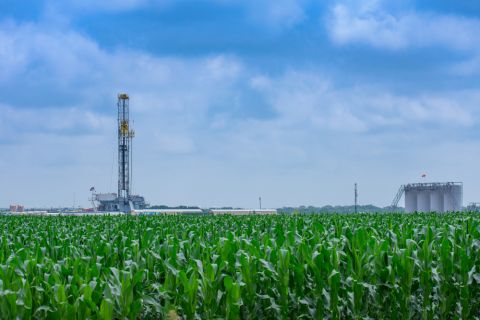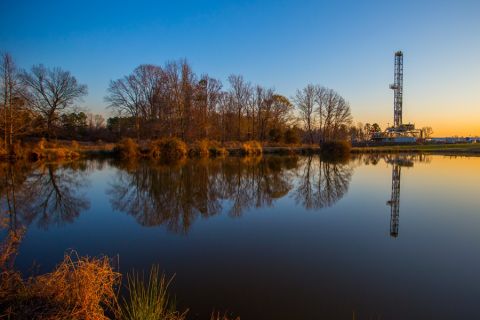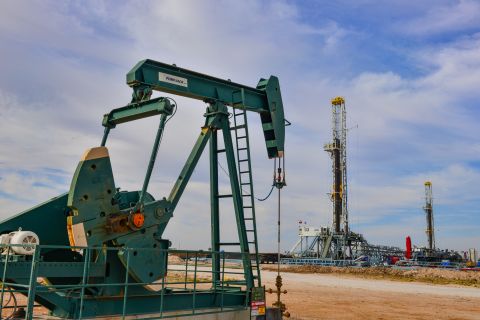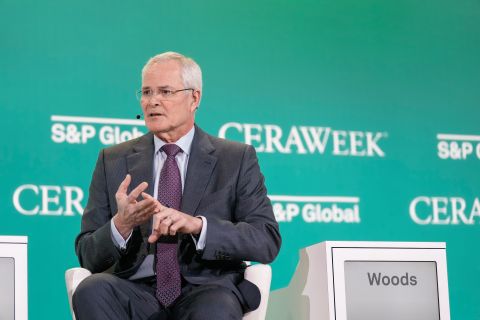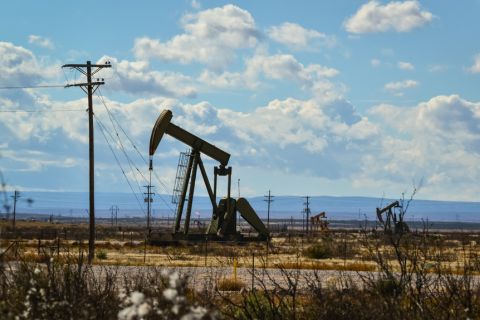Experts at Deloitte's annual oil and gas conference in Houston recently agree there is a global decline in oil production, while they disagree on the severity and timing of the matter and ways to solve it. They are all certain higher prices are here to stay and say these prices are necessary to force governments and the energy industry to drill more wells and do more research on alternative fuels. The most pessimistic of the experts, Matthew Simmons, head of Simmons & Co. International Houston, frequently warns about the dangers of peaking oil production. "No solution at hand is too small. There is no bad form of modern energy," he said. "We need to research everything we can-solar, nuclear, clean coal, other sources. But all that does is buy us some time, a bridge to some new form of energy that does not exist today. "We will look back on this time and ask, 'Why on earth did we wait so long to address a problem that is so significant?'" The future cost of oil needs to be high to encourage drilling and conservation, Simmons said. Since 1981, it has been too low, discouraging reinvestment in enough drilling to make a difference on supply. "Those who say oil has to go back to $20 make no sense. Russia's production growth is not sustainable. They are overproducing their fields and not doing enough exploration. Since 2000, production in the non-OPEC countries and in the former Soviet Union has been flat at best and may be peaking. " If this is true and demand keeps climbing, does the Middle East hold all the cards? No, Simmons said. He termed the situation "twilight in the desert" because many of the largest old fields have already begun a serious production decline. "If I take 2% per year in world demand growth and non-OPEC production is flat, then supply needs to be 44 million barrels a day from OPEC-yet today OPEC produces only 30 million a day. Peak oil doesn't mean we have run out, but it is occurring. The real question is, what is our Plan B?" Simmons cited numerous limits on the ability to expand oil supplies. "The decline curves on most production can't be slowed down except by a furious increase in drilling, but I don't see that happening." The fact that oil companies' exploration and infrastructure developments in remote, expensive places such as offshore Africa and the Caspian Sea, cost billions of dollars, is a clear sign that good prospects are no longer possible closer to home, he said. What about alternatives to oil and gas? "It is too late to modify the world energy mix by 2020 and hydrogen fuel cells are not the answer for transportation," said Pierre-Rene Bauquis of the Institut Francais de Petrol in Paris. Also a member of an international group studying the peak oil situation, he said he agrees with Simmons that the problem needs to be addressed with far more urgency. Bauquis said his decision to join the pessimists' side of the debate was difficult because since 1900, people have predicted the end of oil production-and been wrong. But today he thinks the data are showing the peak will indeed occur soon. "The proved-reserve numbers are the tip of the iceberg. About 50% of the increases in proved reserves in the past 30 years are from old discoveries being re-evaluated-not due to new finds," he said. "What people do not see is the rest of the iceberg: from 1973 to 2000, there has been essentially no increase in the yet-to-be-discovered or ultimate-reserve numbers. Ten years ago, a large part of the world was closed to us and we could not get good data. Now it is more open and we're starting to get data that mean something. Since 1980, we have consumed more oil than we have discovered, and the gap is widening. "We need a price revolution to stop demand growth. My message is not to increase the oil supply, but to prepare ourselves for increased prices...and the role of the politicians is to do something unpopular and reduce demand." The role of technology in bringing new reserves to production is too important to ignore, said Sarah Emerson, managing director of Energy Security Analysis Inc., Wakefield, Massachusetts, and a fellow at Harvard University. "We cannot ignore the potential for great change in this industry. Investments to make additions to reserves are made even as every barrel is produced." Emerson said she agrees that the world oil supply appears to be waning, but she is not willing to bet against technology's affect on adding supply, or changes in governments' laws and taxes that could foster more drilling in new places. Many OPEC countries have announced drilling plans to increase their production by 2006. -Leslie Haines
Recommended Reading
Enverus: 1Q Upstream Deals Hit $51B, but Consolidation is Slowing
2024-04-23 - Oil and gas dealmaking continued at a high clip in the first quarter, especially in the Permian Basin. But a thinning list of potential takeout targets, and an invigorated Federal Trade Commission, are chilling the red-hot M&A market.
Mesa III Reloads in Haynesville with Mineral, Royalty Acquisition
2024-04-03 - After Mesa II sold its Haynesville Shale portfolio to Franco-Nevada for $125 million late last year, Mesa Royalties III is jumping back into Louisiana and East Texas, as well as the Permian Basin.
Mighty Midland Still Beckons Dealmakers
2024-04-05 - The Midland Basin is the center of U.S. oil drilling activity. But only those with the biggest balance sheets can afford to buy in the basin's core, following a historic consolidation trend.
CEO Darren Woods: What’s Driving Permian M&A for Exxon, Other E&Ps
2024-03-18 - Since acquiring XTO for $36 billion in 2010, Exxon Mobil has gotten better at drilling unconventional shale plays. But it needed Pioneer’s high-quality acreage to keep running in the Permian Basin, CEO Darren Woods said at CERAWeek by S&P Global.
Novo II Reloads, Aims for Delaware Deals After $1.5B Exit Last Year
2024-04-24 - After Novo I sold its Delaware Basin position for $1.5 billion last year, Novo Oil & Gas II is reloading with EnCap backing and aiming for more Delaware deals.

